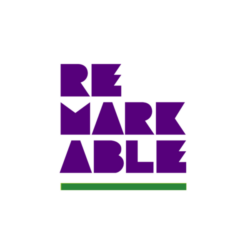Adam Jahnke is the co-founder of Umps Health, which supports people to live safely and independently at home. Umps Health does this using non-intrusive smart plugs that measure patterns in the way people use everyday home appliances, like the TV, kettle, fridge or microwave and raise alerts when behaviour is unusual.
What inspired you to start this?
In 2016, my grandpa fell at home and was hospitalised. When he came out of hospital, he wanted to stay living in the home he’d been in for more than 60 years, and we wanted to support his independence.
I looked to technology, but found that he already had the industry standard in incident detection – a pendant worn around the neck. The problem with this is that we only find out about something after it happens, and like most people, even when my grandpa fell he wasn’t wearing it.
So we set out to build something new. Something that worked with my grandpa’s daily habits, was non-intrusive and easy to install and maintain. My grandpa was the first person to use our technology, we all call him Umps, and that’s where our name comes from.
What’s the biggest challenge you’re facing with building your startup and how do you think Remarkable can help you overcome this challenge?
This year, we want to scale our business and our impact. We can’t do this without partners, and are looking to work with organisations already delivering care to older people and people with disabilities. Remarkable, as a technology accelerator within a large service provider, straddles both the technology and service provider landscape and is uniquely placed to support us during this stage of growth.

What have been the highlights of your Remarkable experience so far?
Definitely exhibiting Umps Health’s technology at the Sydney Disability Expo. At the Expo, we spoke to hundreds of people with disabilities and their families about how technology meets (or doesn’t meet!) their needs. I was taken aback by how hungry people are for this type of technology, and it gave us the opportunity to hear first hand about the transformational power of disability tech. In particular, I loved hearing the stories of people in their 20s and 30s using technology to live with autonomy for the first time. And the best part? We’re now supporting some of those people we met at the Expo.
You’ve done another accelerator program. How does Remarkable compare to the other accelerator program you did?
Prior to Remarkable, we were a participant in the Melbourne Accelerator Program (MAP) – run by the University of Melbourne. The support we received from MAP matched the challenges we faced at the time. During the program, we worked to better understand the problem we were solving, test our value proposition with early customers and outline our strategy for growth.
When we came into Remarkable, we already had a product and some traction with early customers in aged care. It was Remarkable’s clear focus on disability tech that motivated us to apply, and we entered the program with 3 specific goals: to determine whether our technology could work for people with disabilities, to identify potential funding streams under the NDIS and establish a presence in New South Wales. I’m glad to say, we’ve accomplished all three!
Do you have any tips for startups who are trying to get on an accelerator program?
You don’t need to wait until you’re accepted into a program to access the benefits of being part of the community. Both Remarkable and MAP run events and masterclass programs all year around, and the mentors, alumni and program teams are very generous with their time.
What is your top tool, blog, book or podcast that you’d recommend others look at?
Tackling Heropreneurship, by Daniela Papi-Thornton. Daniela’s research outlines the importance of taking a systems approach to social impact, removing ego from the equation, understanding your unique strengths and finding your “you-shaped hole”. The Impact Gaps Canvas from the report is a really practical tool to map a complex problem landscape, the existing solutions and identify potential gaps.




